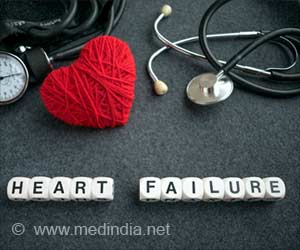Worst extent of injury to the heart occurs when individuals experience a heart attack between 1:00am and 5:00am, study finds.

"We were trying to ascertain whether the time of day of when a heart attack occurs influences the amount of damage that the heart sustains, or was this just a phenomenon exhibited in rodents," said the study's senior author Jay H. Traverse, MD, a cardiologist at the Minneapolis Heart Institute® at Abbott Northwestern Hospital in Minneapolis and physician researcher with Minneapolis Heart Institute Foundation.
A retrospective analysis of 1,031 patients in the Level 1 acute MI database with an acute heart attack, or ST-elevation myocardial infarction (STEMI), referred for primary percutaneous coronary intervention (PCI) with known ischemic times between one and six hours, identified 165 patients with their first heart attack who had occluded arteries on presentation without evidence of pre-infarction angina or collateral blood flow.
All 165 patients had well-defined ischemic times and the data were supported by a subgroup with cardiac MRI measurements of infarct size, or size of heart attack, and area-at-risk.
The researchers observed that the extent of infarct size was significantly associated with time of day onset of infarction. The greatest myocardial injury occurred at a 1:00am onset of ischemia and 5:00am onset of reperfusion with the peak injury being 82 percent higher than that recorded at lowest time of injury.
What are the implications of these findings? "It is important to understand that the heart's ability to protect itself against more severe damage varies over a 24-hour cycle. Identifying those protective changes may be particularly relevant for pharmaceutical manufacturers that are seeking to develop cardioprotective drugs," Traverse explained.
Advertisement















